Heat Gun Vs. Hair Dryer: Can Both Be Used For Hair?
Clear your confusion between these two tools and learn to use them the right way.
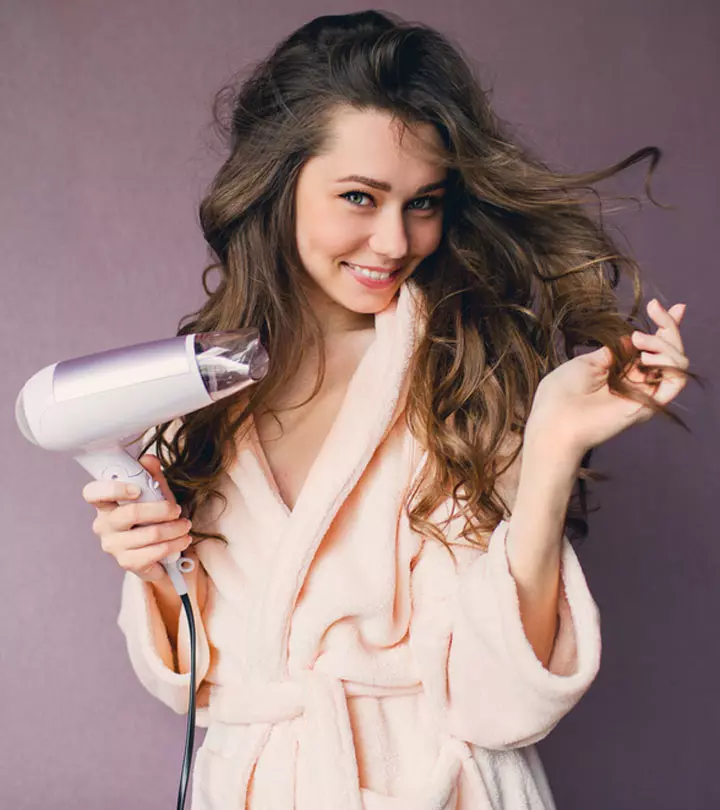
Image: Shutterstock
It is not an exaggeration to say not many know the difference between a heat gun and a hairdryer appliance.
Though these tools look similar and work almost the same way, you cannot replace them with one another.
A heat gun is intended for industrial use, like getting rid of paint and molding plastics. So, it cannot be replaced with a hair dryer. It may cause severe damage to hair and scalp if used on hair. This article gives you details on how a hairdryer works and why a heat gun should not be used for hair. Read on.
 Before You Get Started
Before You Get Started- Using hair dryers on high heat settings can damage the hair and scalp. Ideally, use them on the lowest heat settings to avoid dryness and damage.
- Always use a heat protectant spray and leave-in conditioner that contains silicone to avoid frizz.
- Maintaining the distance between your hair and the blow dryer is crucial to avoid frying your locks. Hold it about 8 inches away from your hair.
In This Article
How Does The Hair Dryer Work?
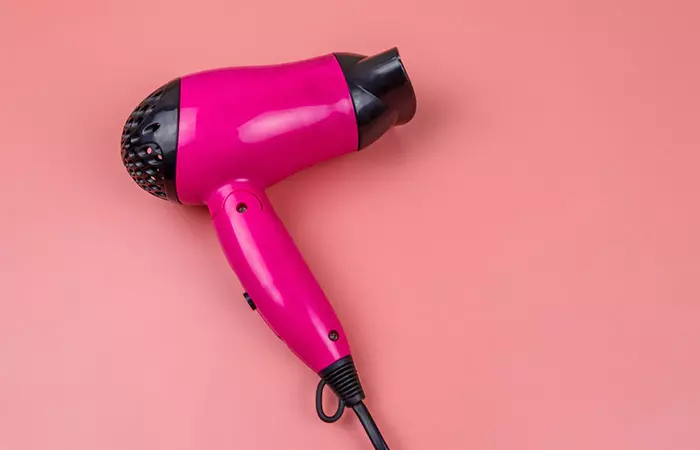
A hair dryer has a motor-powered fan located at the back of the device. When switched on, this fan intakes air, which passes over a heating resistance coil and heats up. This hot air is then let out of the front exit point. With hair dryers, you’re in control. These versatile tools come with multiple heat settings, giving you the power to tailor your hair care routine to your hair’s unique needs. Whether your hair is fine or thick, you can confidently choose the right setting, with a lower heat setting for fine hair and a higher setting for thick hair.
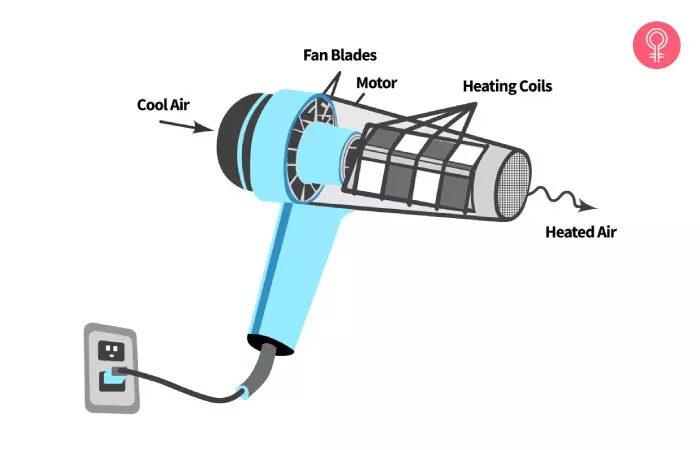
The heat gun also has a similar mechanism. However, it has a completely different application from that of a hair dryer. Read on to know the basic differences between them.
Key Takeaways
- A heat gun is primarily designed for industrial jobs like soldering, while hair dryers are designed for hair drying.
- You can not use a heat gun on your hair and scalp, as it may cause severe damage.
- Hair dryers work at lower temperatures and are exclusively meant for styling hair.
- Excess use of hair dryers at high temperatures may cause hair dryness, leading to hair damage.
Hair Dryer Vs. Heat Gun: The Basic Difference
| Attribute | Hair Dryer | Heat Gun |
|---|---|---|
| Usage | Only for drying hair | Home improvement or industrial use like removing floor coverings and paint, defrosting, removing rust bolts, and paint drying. |
| Temperature | Can heat up to 145°F | Can heat up to 1300°F |
| Airflow | Uses a fan to distribute hot air evenly and gently. | Delivers a concentrated airflow directed through a narrow nozzle. |
As the hair dryer comes nowhere close to the temperature range of a heat gun, it is clear that the latter is only meant for heavier jobs.
Can You Use Both For The Hair?
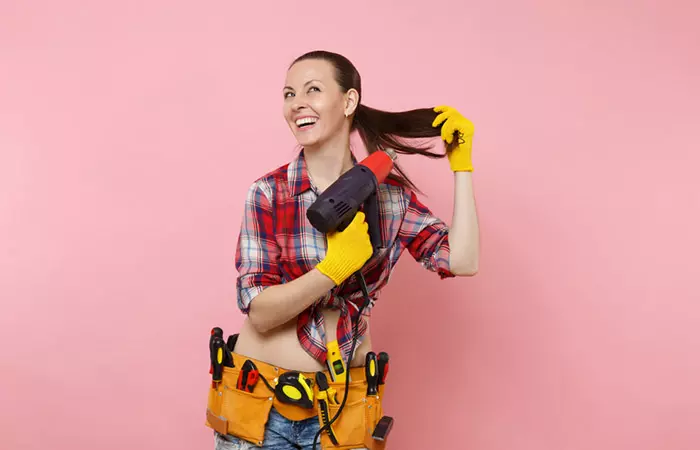
You cannot use a heat gun on your hair.
The hair dryer is designed to style and dry the hair. Its temperature control settings are ideal for hair styling and maintenance. A heat gun is not designed for hair drying purposes. While it can reach a minimum temperature of 100°F, it is not suitable for the scalp and hair. If heat is blasted on wet or damp hair, it will heat up the water in the hair, causing it to boil. This cooks the hair from the inside out, burning the hair internally before the cuticle lifts and the water can escape in a steam. Electrical safety is an important consideration when using a corded heat gun compared to handheld ones.
This is because it lets out concentrated hot air, unlike a hair dryer that spreads hot air evenly. The concentrated hot air can severely damage the hair and burn the scalp. Concentrated hot air lifts the cuticle straight out, not just a little bit like a blow dryer. It leaves the hair damaged, frizzy, and completely open so that no moisture stays in it at all. Therefore, strictly avoid using a heat gun for drying your hair. Although, a hair dryer is a safe and expert-recommended tool. Using it with utmost precaution is vital. Hold the dryer 6-8 inches away from the scalp while drying your hair. Here is a comparison between both devices for a better understanding.
Comparison Between Hair Dryers And Heat Guns
| Hair Dryer | Heat Gun |
|---|---|
| Designed to dry and style hair | Designed for home improvement needs |
| Heats up to 145°F | Heats from 100°F to 1300°F |
| Has distributed hot airflow, suitable for hair | Has concentrated hot airflow that is unsuitable for hair |
| Causes lesser heat damage than air drying | May cause severe damage if used on the hair and scalp |
Excessive heat can damage the hair shaft, affecting the hair quality. Read on to know how.
Effects Of Heat Damage On Hair
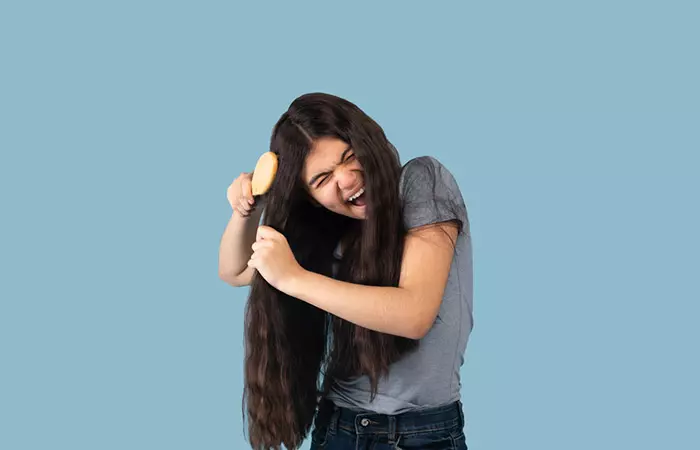
Excessive heat can make the hair dry and rough (1). Blowing Hot air can penetrate the hair cuticle, reaching the cortex (inner layer). This can weaken the hair structure, affect the hair color, and may cause hair breakage and split ends.
 Quick Tip
Quick TipIf you are using a more concentrated heat source, like the heat gun, it can severely damage the hair structure. Even excessive use of a hair dryer can damage the cuticles.
How Safe Is Using A Hair Dryer?
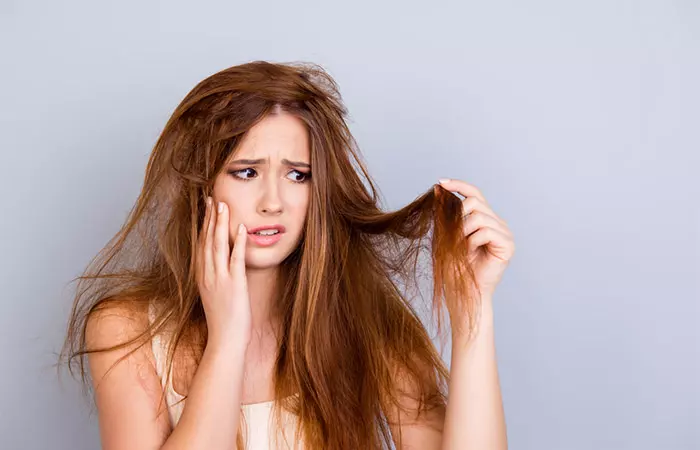
Too much of anything is bad. Excessive hair dryer use on high heat settings can cause dryness and make the strands brittle, leading to hair damage.
However, blow drying is a better option than air drying. This is because leaving the hair damp for too long can damage the hair cell membrane complex and alter the natural hair color. Using a hair dryer at a distance of 15 cm with continuous motion can cause less damage (1).
Charukshi Wijesinghe, a blogger, recounts the hair loss she experienced and points out what she did to stop it on her personal blog: “I rarely use my dryer and flat iron now, and trust me, I feel my hair has become so much stronger and healthier (i).”
 Quick Tip
Quick TipInfographic: The Basic Differences Between Hair Dryers And Heat Guns
To recap, though a heat gun and hair dryer may seem similar, their differences are quite major. It is important to be aware of these differences to ensure you don’t end up damaging your hair and scalp. We have listed the basic dissimilarities in the infographic below that you can keep handy. Scroll down and check it out now!

Illustration: StyleCraze Design Team
Bottom Line
There is no way to compare the results of using a heat gun vs. a hairdryer because they are quite different from each other at many levels. Heat guns and hair dryers may look similar, but they serve distinct purposes. A heat gun is intended for industrial and household usage only and should never be used to dry your tresses. Otherwise, it may result in hair loss and scalp burns. So, you should exercise caution and stick to your regular hair dryer to dry and style your hair.
Frequently Asked Questions
What other applications can a hair dryer be used for?
A hairdryer has many practical uses. It can defog your mirror, remove wrinkles from your clothes, quickly dry your nail paints, loosen adhesive stickers, and warm up your clothes during winter.
What can I use instead of a hair dryer?
Instead of using a dryer, you can try different ways to air-dry hair or use a micro fiber towel.
How long can you run a heat gun?
You shouldn’t keep a heat gun on for too long as it heats up quickly and reaches high temperatures fast.
Can you use a hair dryer as a heat gun to remove paint?
Yes, a hair dryer can remove paint instead of a heat gun. As they do not emit high heat temperatures, they may take longer to remove the paint than a hot air gun.
Illustration: Heat Gun Vs. Hair Dryer: What Is The Difference?
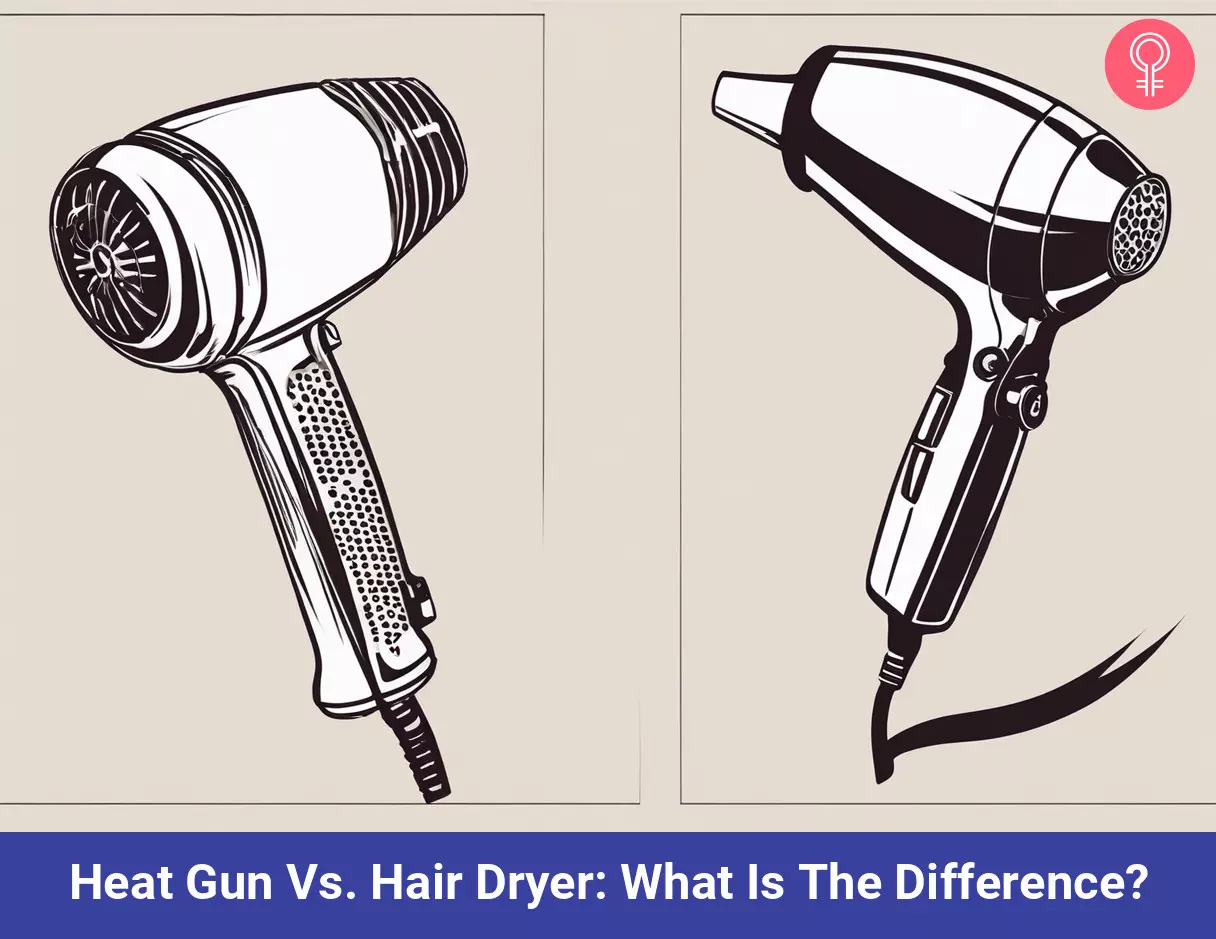
Image: Stable Diffusion/StyleCraze Design Team
References
Articles on StyleCraze are backed by verified information from peer-reviewed and academic research papers, reputed organizations, research institutions, and medical associations to ensure accuracy and relevance. Read our editorial policy to learn more.
- Hair Shaft Damage from Heat and Drying Time of Hair Dryer
https://www.ncbi.nlm.nih.gov/pmc/articles/PMC3229938/
Read full bio of Madison Dufour
Read full bio of Anjali Sayee
Read full bio of Madhumati Chowdhury
Read full bio of Bhumika Daga






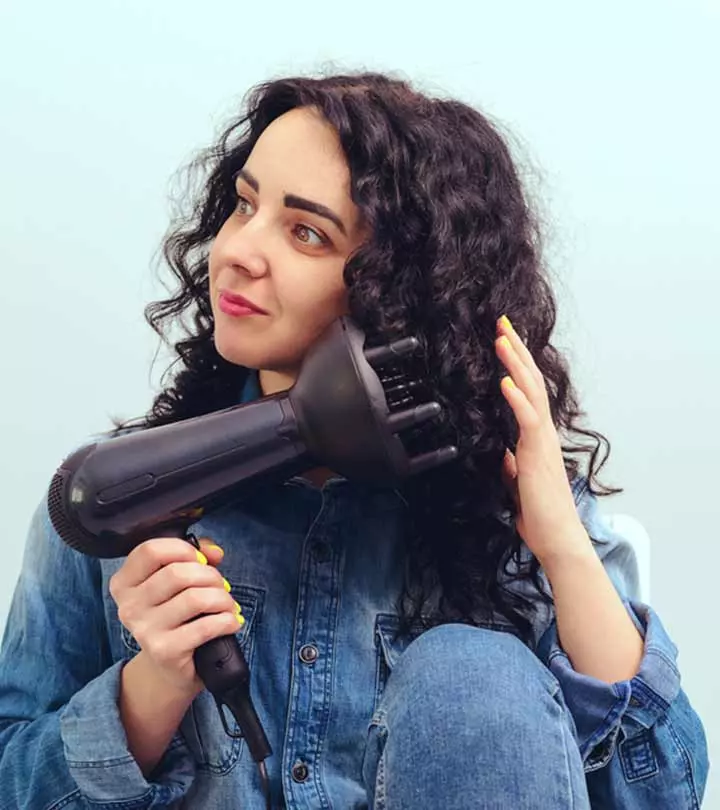
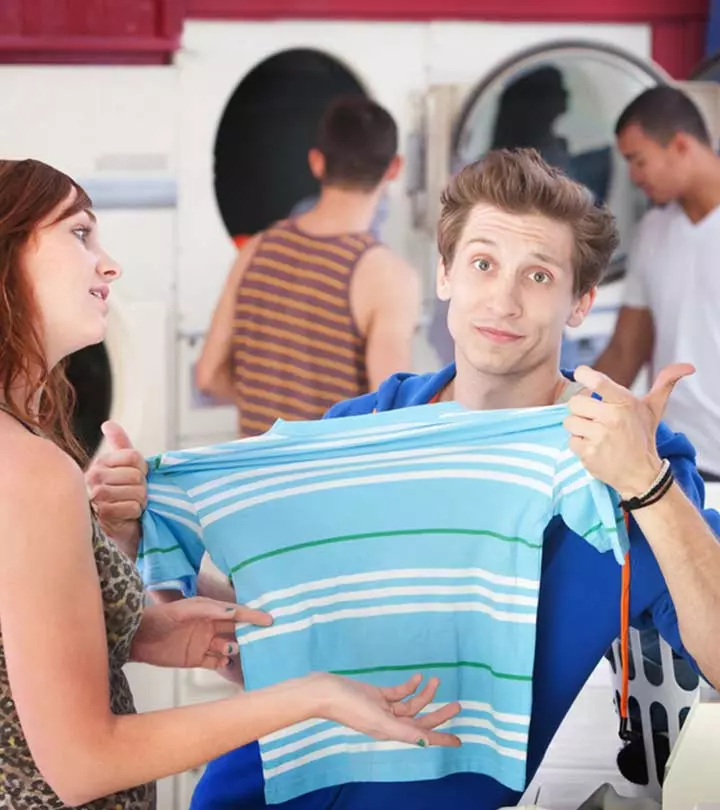
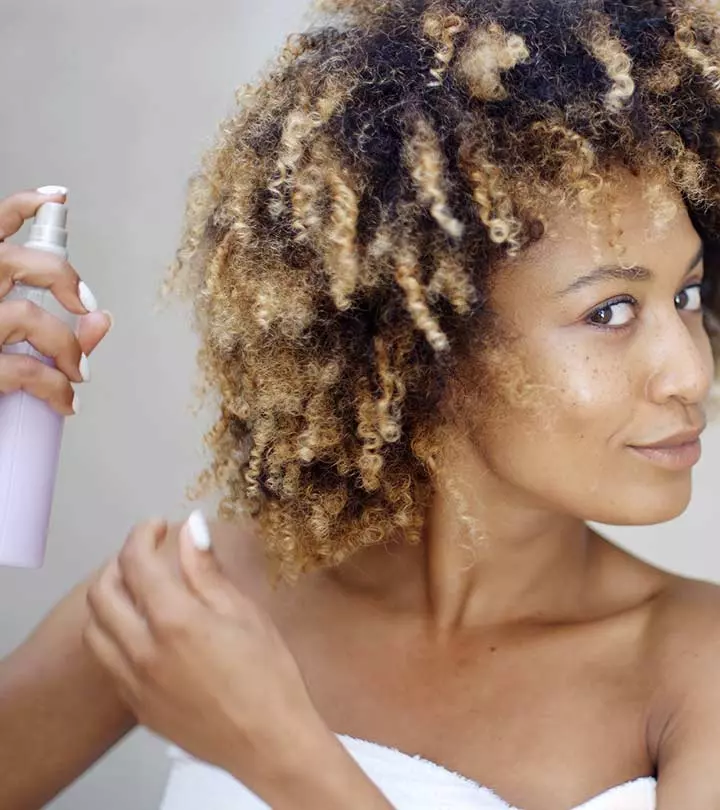
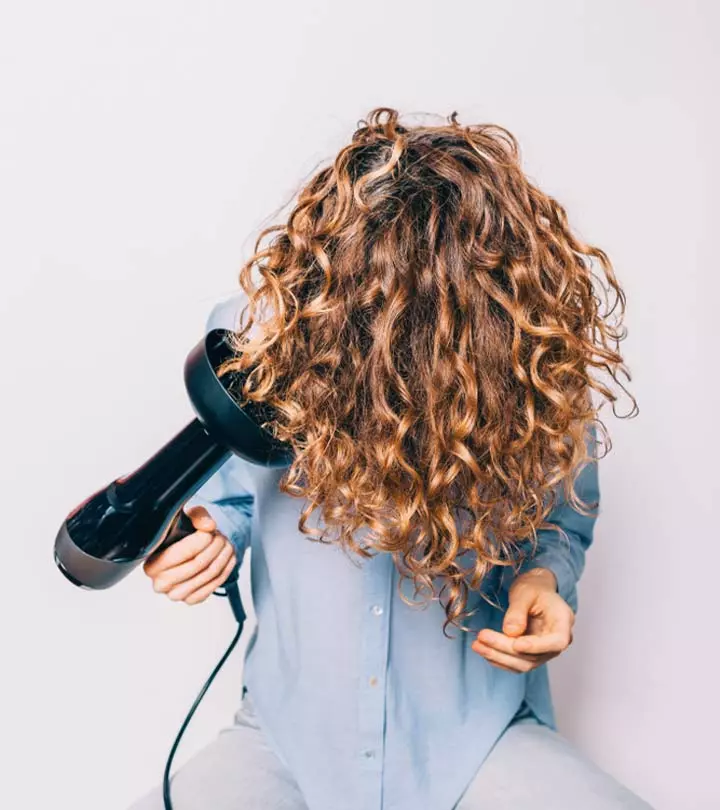

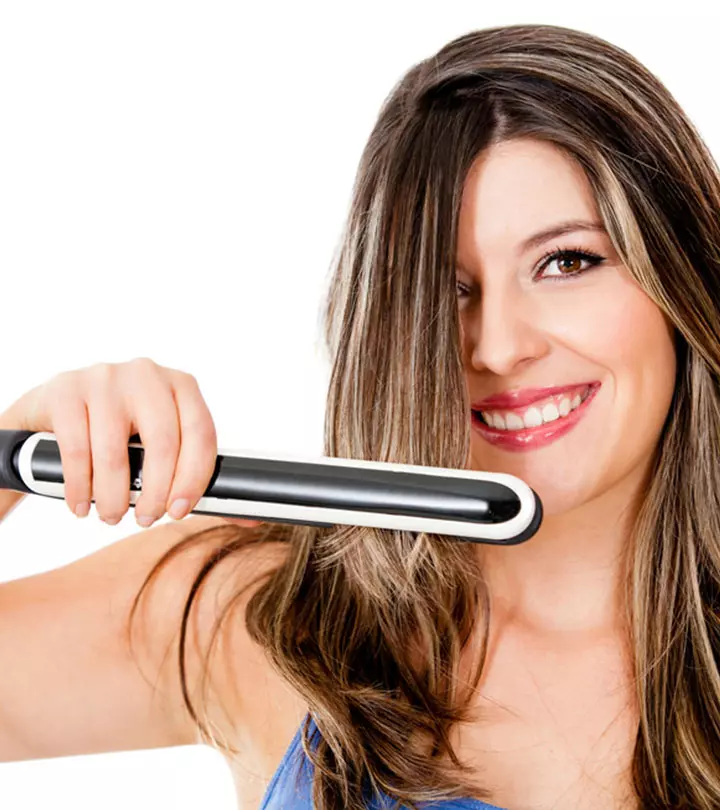

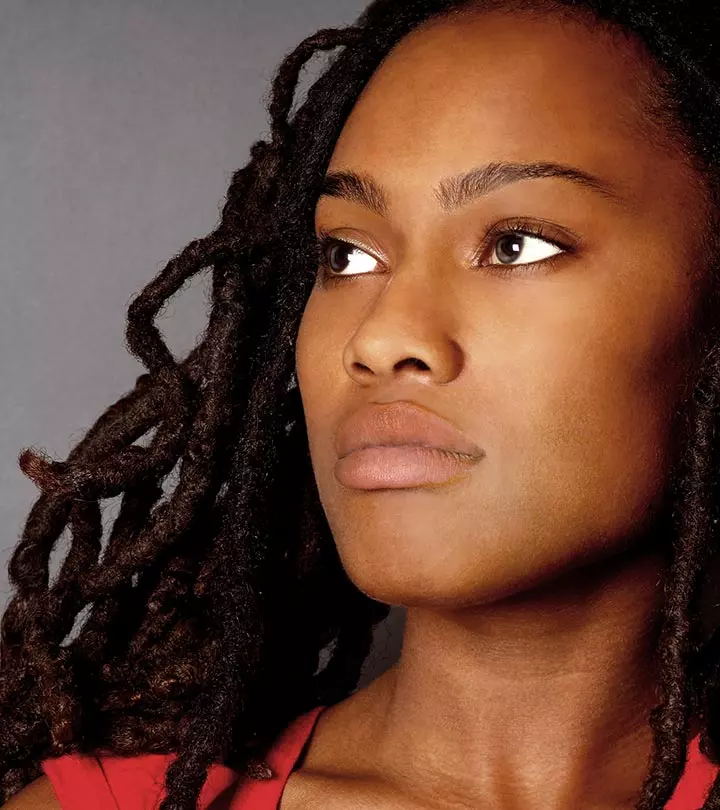


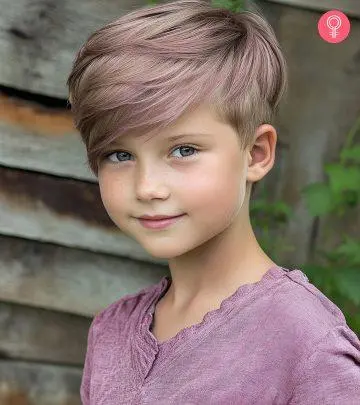

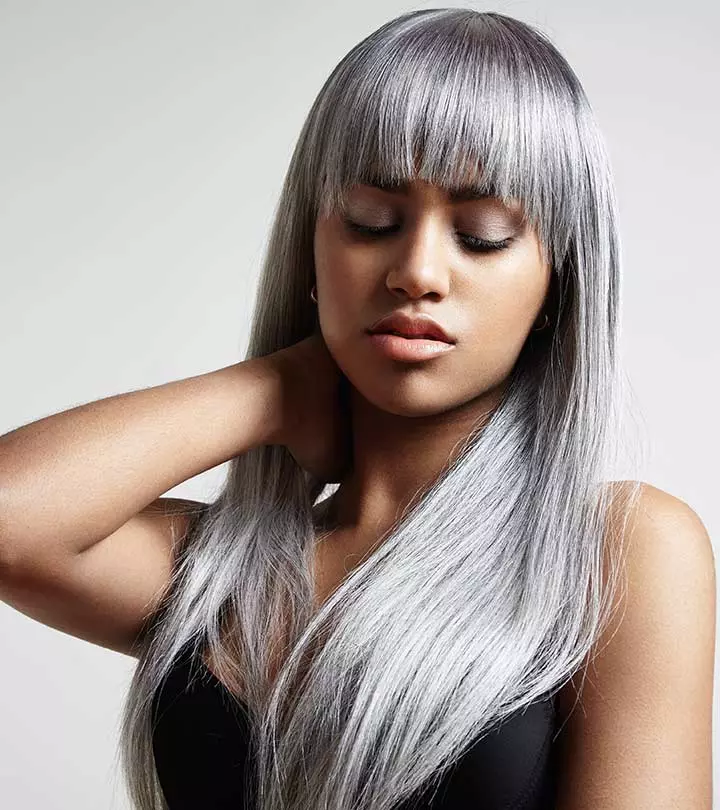
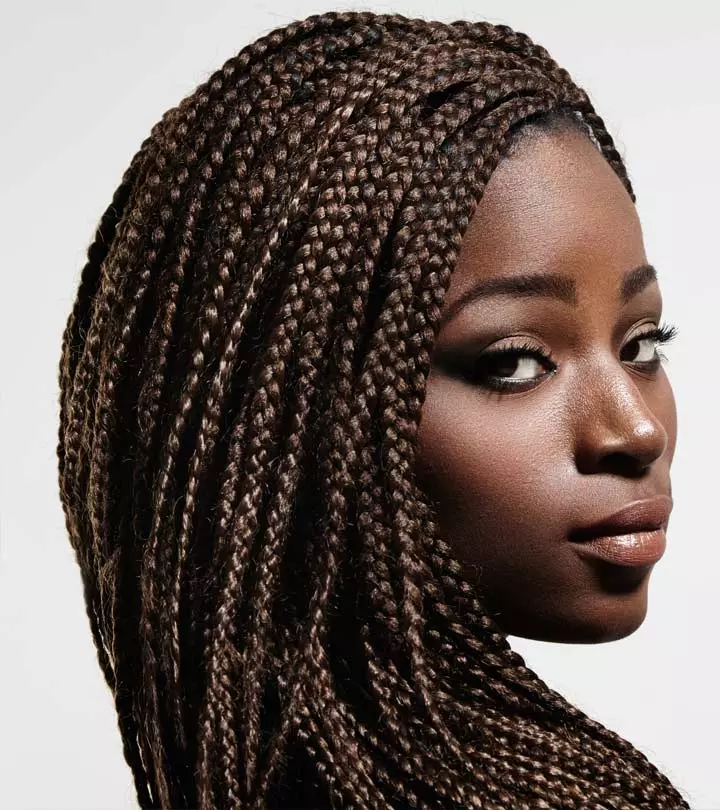


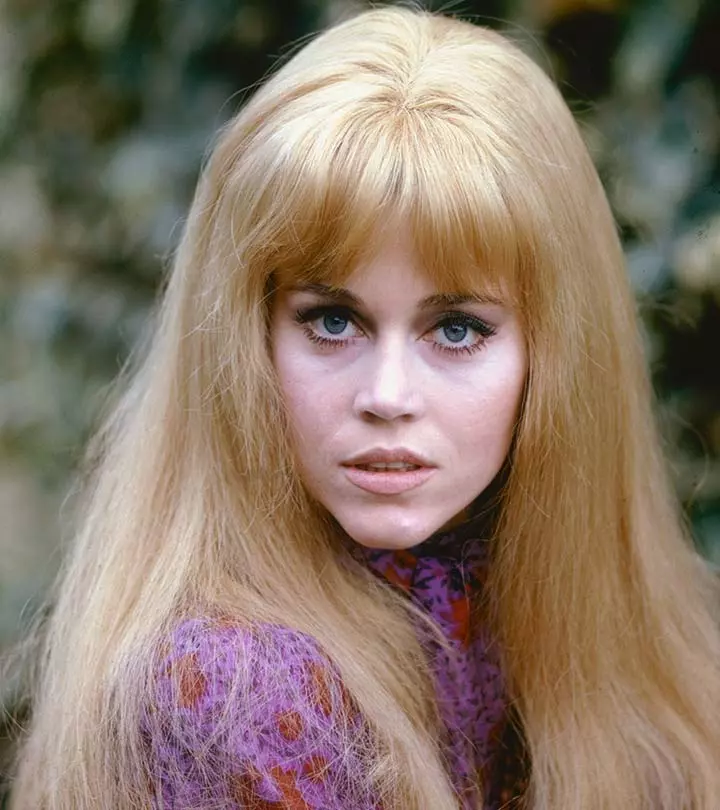

Community Experiences
Join the conversation and become a part of our empowering community! Share your stories, experiences, and insights to connect with other beauty, lifestyle, and health enthusiasts.